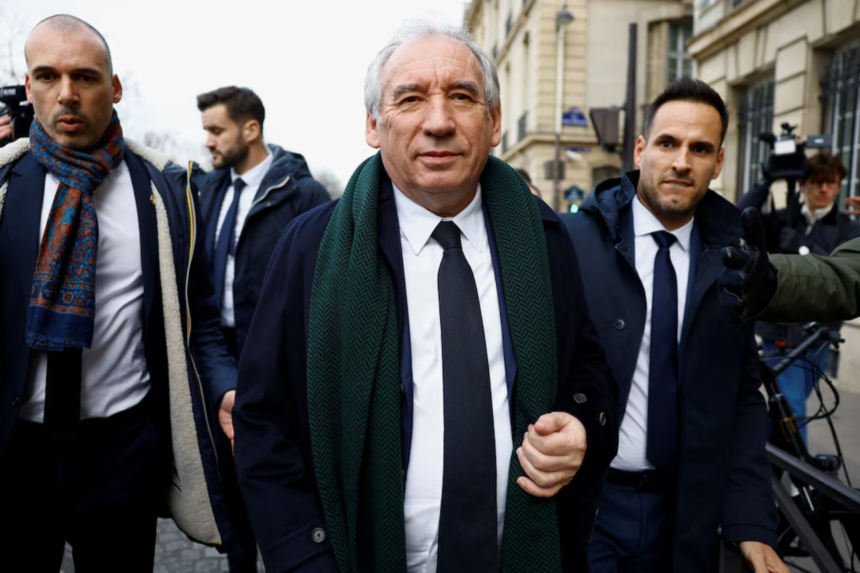French President Emmanuel Macron has appointed his long-time ally, François Bayrou, as the country’s new Prime Minister for 2024. However, Bayrou’s appointment comes at a time of deep political division, with the Socialist Party immediately rejecting any participation in the government, highlighting the monumental challenges he faces.
Bayrou, a 73-year-old centrist veteran and founder of the Democratic Movement (MoDem), has been a key part of Macron’s political alliance since 2017. Despite his experience, Bayrou did not mince words about the daunting task ahead, stating, “It is a long road, everyone knows that.”
Macron’s second term has been marred by political instability and an increasingly fragmented parliament. The president faces growing doubts about his ability to complete his mandate through 2027. The situation has worsened France’s borrowing conditions and created a political vacuum just as Europe grapples with shifts in power, including Donald Trump’s return to the White House and Germany’s unstable political landscape.
Bayrou’s immediate task is to secure the 2024 national budget, following the fall of his predecessor, Michel Barnier, who was ousted due to strong opposition to his proposed austerity measures. As Bayrou prepares for a tough battle over the 2025 budget, left-wing leaders have already warned of possible attempts to topple him if he bypasses parliament using special constitutional powers to push through the bill.
Bayrou’s close association with the unpopular Macron is a potential vulnerability. The Socialist Party, which Macron had courted during the search for a new prime minister, rejected his nomination, accusing the president of ignoring leftist demands in favor of a more “risky” candidate aligned with his own political camp. “We will remain in the opposition,” declared Boris Vallaud, leader of the Socialist parliamentary group.
Left-wing Reaction and Potential No-Confidence Motions
Macron’s hopes for political stability rest on Bayrou’s ability to navigate opposition hostility. The Socialist and far-left parties are united in their discontent, with France Unbowed immediately calling for a no-confidence motion against Bayrou. While some left-wing leaders have shown more restraint, with Greens leader Marine Tondelier and Communist leader Fabien Roussel taking a wait-and-see approach, there is a clear determination among these groups to oppose any attempts to impose controversial fiscal policies, particularly around taxation and pensions.
The far-right National Rally (RN) party, led by Marine Le Pen, has yet to demand a no-confidence vote but has made it clear that Bayrou must be receptive to their budgetary concerns. These political battles come on the heels of Bayrou’s earlier resignation as justice minister in 2017 amid allegations of fraud, though he was acquitted of the charges this year.
Financial Strain and the 2025 Budget Challenge
One of Bayrou’s biggest challenges is the 2025 budget, which will likely spark intense debate as it includes deep austerity measures. Bayrou’s predecessor Barnier proposed a plan aimed at cutting 60 billion euros ($63 billion) in public spending, a proposal that was fiercely criticized by both the far-left and far-right, further inflaming political tensions. The inability to push through the 2024 budget has already led to rising borrowing costs for France.
Kathleen Brooks, Director of XTB Research, remarked that while Bayrou’s appointment may not have an immediate impact on France’s bonds, the country’s political instability continues to affect investor confidence. She also highlighted that the CAC 40 French stock index is underperforming compared to German stocks by a significant margin, adding to the economic pressure.
Despite these hurdles, Macron will hope that Bayrou can steer the country through its political crisis, staving off no-confidence motions and securing crucial reforms. However, with opposition parties already gearing up for a battle, Bayrou’s ability to deliver will be tested in the coming months, especially as parliamentary elections loom in the summer.
Bayrou’s appointment signals a new phase in Macron’s leadership, but it also highlights the fragility of the French political landscape. With the looming challenges of austerity measures, political opposition, and economic pressure, Bayrou will need all his experience to manage France’s fractious parliament and fulfill the president’s vision for the country’s future.







